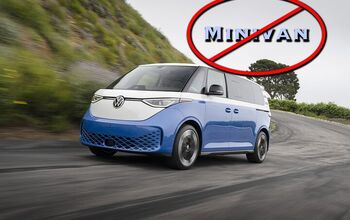How to Avoid the Worst Extended Auto Warranty Companies
To learn more about our editorial integrity policy and how we make money through affiliate partnerships, read our full disclosure here.
The worst extended auto warranty companies are known for poor business practices, pushy salespeople, and misleading contracts. You may have received a deceptive mailer or been harassed by a robocall yourself.
While the best extended auto warranty providers don’t engage in such practices, many other companies do. Read on to learn how to avoid scams and see what to do if you’ve already handed over your credit card information.
If you’re shopping for a warranty and want to see how much coverage would cost from a legitimate provider, start by comparing free quotes from our top recommended companies above.
Table of contents
Extended Auto Warranty Scams
Mailers
Be wary of mailers. Not all companies that send offers by mail are scams, but many are. A common deception technique used by poor auto warranty companies is to send out notices that seem to be from your car dealership or manufacturer warning you that your coverage is about to expire.
Vehicle manufacturers and dealerships generally do not send mailers. A letter with the words “notice,” “final offer,” or anything similar should be regarded with suspicion. If you want to be sure the notice is not from the dealership, call and ask before sharing any privileged information.
Duplicate Coverage
Every manufacturer provides factory warranty coverage for new and certified pre-owned vehicles. Familiarize yourself with your manufacturer’s coverage so you don’t get duped into buying an extended service plan for a vehicle that is already protected.
Do be aware that some legitimate companies—including manufacturers themselves—may try to sell you extended coverage while your car is still under warranty. This is not a scam so long as it is clear that new coverage begins once your new car warranty expires.
Unsolicited Calls
Make sure you are the one doing the calling when you decide to purchase extended car warranty services. Don’t sign up for a vehicle protection plan because of an offer made to you by an unsolicited caller. Robocalling is a common practice used by the worst extended auto warranty companies.
Car manufacturers will not make unsolicited calls. If you want to purchase a manufacturer’s auto protection plan, sign up through the manufacturer’s website or visit a dealership yourself.
Aggressive Sales Tactics
If you feel you are being bullied or rushed into making a purchase, hang up the phone or leave the dealership. Sellers with a quality product will not feel the need to rush customers into a decision. If your salesperson is rude or tries to discourage you from thinking too hard about your decision, stay away. Even if the provider is not necessarily one of the worst extended auto warranty companies on the market, rude salespeople are not a positive indication of how you’ll be treated as a customer down the line.
What to Do If You’re Scammed by a Warranty Company
- Deal with the company directly.
- File a complaint with the Better Business Bureau (BBB) or appropriate government organization.
- Protect yourself by making the appropriate calls.
- Consider taking legal action.
First, try dealing with the company directly. Many car warranty companies will offer prorated refunds. Legitimate companies may even offer a full refund if you express that you were misled by the person who sold your contract. If a company refuses to cancel your contract or makes canceling difficult, try filing a complaint through the BBB website. Many companies take their BBB profiles seriously and make an effort to address customer complaints.
You can also consider filing a complaint through the Federal Communications Commission (FCC). The FCC is responsible for regulating the telecommunications industry, so you might file a complaint about phishing phone calls or issues that occurred over email or the internet. If you choose this path, the company you complain about has 30 days to send you a response.
Another route for complaints is the Federal Trade Commission (FTC), which is responsible for protecting consumers in all industries. Historically, the FTC fines companies that violate the Telephone Consumer Protection Act. This tactic is not likely to be helpful with resolving your issue, but it could help establish a pattern of complaints that leads to an FTC intervention.
There are a few other calls you may want to make to protect your finances and personal information:
- Call your bank if you gave the fraudulent company your credit card information and explain what happened.
- If you have evidence that your social security number is being used fraudulently, contact the Social Security Administration (SSA).
- If you have evidence that your credit card is being used by someone other than yourself, the SSA recommends visiting IdentityTheft.gov to report the problem and get a recovery plan.
Finally, if all else fails, you can try suing the company in civil claims court. Depending on how much you have spent on your contract, this step may not be worth the hassle.
The Worst Extended Auto Warranty Companies
ASAP Warranty
ASAP Warranty is not currently operating. It has a history of failing to honor it’s 30-day cancellation policy after customers realized that the company lacked in service. There are several customer reports of receiving no response from ASAP when trying to file claims. This is why it’s important to pick a reliable auto warranty company, not just the least-expensive option.
Direct Buy Auto Warranty
Direct Buy Auto Warranty defrauded customers by failing to pay repair bills that should have been covered. In 2015, the company reached an $810,000 settlement with the state of New Jersey. It was also ordered to cease operations in the state of New Jersey and ended up filing for bankruptcy.
How to Find a Legitimate Extended Car Warranty Provider
1. See What the Experts Have to Say
Basic research should be conducted on any company with which you intend to do business. A simple Google search is a good place to start. Be sure to check a company’s BBB profile. The BBB rates companies based on years in business, legality of business practices, customer complaint history, and how companies reply to these complaints. If a company is not rated by the BBB, that could be a negative sign.
Many reputable extended car warranty providers sell contracts that are backed by third-party administrators. Find out which company administers your contract, and do the same research to ensure it’s legitimate. If your provider’s plans are underwritten by an insurance company, check the AM Best financial strength rating of that insurer. This rating is a good indication of a company’s ability to pay out claims.
2. Know What Information Providers Do and Don’t Need
Reputable third-party extended auto warranty providers will never need to know your social security number or bank routing number. They also won’t need a copy of your license, passport, or any other personal document.
Some legitimate things that car warranty providers could ask for include:
- Contact information: Name, phone number, email address, mailing address
- Vehicle information: Year, make, model, vehicle identification number (VIN), miles on the odometer
- Personal affiliations: The name of your car insurance company, if you are a member of any alumni organizations, your employment
Some reputable car warranty providers are affiliated with certain insurance providers, alumni groups, and professional organizations. Members of these groups could qualify for discounts.
3. Read the Contract
Always ask to read a contract before you agree to pay for anything. When reading through a contract, look out for the following:
- Transferability: Can coverage be transferred to the next owner if you sell your vehicle? Most reputable providers offer fully transferable contracts, though sometimes with a small fee.
- Exclusions: Check what is excluded. Standard exclusions include wear-and-tear items like brake pads, brake shoes, glass, wiper blades, wheels, and tires. Exteriors and upholstery are usually excluded as well.
- Responsibilities: Virtually every vehicle service contract requires that you maintain your vehicle according to the manufacturer’s recommended service schedule at your own expense. Some companies will require that you keep receipts as proof of this maintenance.
Extended warranty providers may have a 30-day money-back guarantee and tell you that you can read the contract later and cancel any time. While the offer of a money-back guarantee is often legitimate, it can also be a hassle to cancel a contract. It’s better to make sure you want a product before you buy it than to ask questions later.
4. Read Customer Reviews
Research any company with which you plan to do business. You can read customer reviews and complaints on the BBB website. Companies with a high volume of customer complaints will have notices on their profiles.
Here are some signs to watch out for:
- Reviews are written by the same person or all positive reviews are written on the same day
- Multiple reviewers use words like “scam,” “stay away,” or “buyer beware”
- Many people report unsolicited phone calls, mailers, and other scam tactics
5. Understand the Claims Process
Be sure to learn how claims servicing works for your contract. The vast majority of extended auto warranty plans have a similar claims process. This involves taking your vehicle to a certified technician, calling the claims administrator for approval before repairs begin, and the administrator paying the mechanic directly.
6. Look Out for Interest Charges
An extended warranty directly from the manufacturer is a good way to avoid third-party scams. However, when you purchase a contract at the dealership, representatives may try to roll the service contract into your auto financing without making it clear that an extended warranty is a separate product that is not required.
Make sure that you check all the charges listed on your loan agreement before you sign on the dotted line.
3 Most Reliable Extended Car Warranty Companies
It would be difficult to provide an extensive list of every subpar car warranty company. But we are able to recommend some companies that are known to provide quality services and excellent pricing: Endurance, CARCHEX. These providers offer broad coverage options and allow you to service your vehicle at any repair shop certified by the National Institute for Automotive Service Excellence (ASE®).
Each provider offers mutiple levels of auto repair coverage and gives car owners perks like courtesy towing, roadside assistance, trip interruption coverage, and rental car reimbursement with all coverage plans.
You can learn more in our Endurance review and CARCHEX review.
Methodology
- Price: Comparing providers can be difficult due to the many factors that influence cost. To determine this score, we employ a secret shopper analysis using different vehicles, mileages, warranty plans, and locations.
- Coverage: A wide variety of coverage is essential to support the differing needs of customers. We take into account the number of extended car warranty plans available, term limits, exclusions, and additional benefits.
- Customer Service: The level of customer service and care provided by an extended warranty company is an important consideration. Our review team sifts through customer reviews and complaints from reputable sources such as the Better Business Bureau (BBB) and Trustpilot. We also consider the responsiveness of each company’s customer service team based on our secret shopper analysis.
- Reputation: Good extended warranty providers consistently provide quality experiences. Our team takes into account BBB ratings and the company’s history of reliable service when giving this score.
- Transparency: Customers value a commitment to open and honest communication when it comes to vehicle service contracts. Our team of experts takes into account the availability of money-back guarantees and sample contracts.
Stephen Kenney is a writer and editor who focuses on car insurance, auto financing, and vehicle shipping services. He's a graduate of UNC-Chapel Hill and has experience covering categories ranging from travel to sports to environmental sustainability. In his free time, Stephen enjoys going on long-distance runs, trying out new recipes, and exploring his adopted hometown of Cincinnati.
More by Stephen Kenney
































Comments
Join the conversation